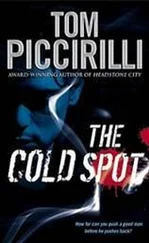Halfway through the fifth summer of my life I learned that my foster mother was to marry again. After the hay gathering, the wedding was to be celebrated between the young widow Gudrid Thorbjornsdottir and another of Erik's sons, Thorstein. I was neither jealous nor resentful. Instead I was delighted. Thorstein was my father's youngest brother and it meant that my adored Gudrid was now to be a genuine relation. I felt that the marriage would bind her even more closely to me, and was only worried that after the wedding I would have to go to live in the main Eriksson household, which would put me in range of my detestable aunt Freydis. She had grown into a strapping young woman, broad shouldered and fleshy, with a freckled skin and a snub nose, so that she attracted men in a rather over-ripe way. She was also full of spite. She was always hatching plots with her girlfriends to get others into trouble and she was usually successful. On the few occasions I spent any time in my father's house I tried to stay clear of Freydis. Sixteen years older than me, she regarded me as a pest, and would think nothing of shoving me roughly into the darkness of the root cellar and locking me in there for hours, going off and not telling anyone. Luckily old Thorbjorn, Gudrid's father, who was still alive though weakly, was so pleased with the match that he agreed to let the newly-weds share his house, which was a short walk from the Eriksson home.
The wedding was a huge success. To satisfy grumpy old Thjodhild there was a brief Christian ceremony at the White Rabbit Hutch, but the main event was the exchange of ceremonial gifts, heavy beer drinking, raucous music and stamping dances which are the mark of the old-style weddings.
My next distinct memory of Greenland is a bright spring morning with the ice floes still drifting silently in our fjord. The glaring white fragments, so luminous on grey-blue water, made my eyes hurt as I stared at a little ship edging slowly towards us. She was a knorr, battered and seaworn, her planks grey with age. Some men were rowing, others handling the ropes as they tried to swing the rectangular sail to catch the cold breath of the faint wind that came from the north, skirting the great glacier behind us that is the heart of Greenland. I still recall how, from time to time, the oarsmen stood up to push with their blades against the floes, using the oars as poles to punt their way through the obstacles, and how slowly the boat seemed to approach. A crowd began to gather on the beach. Each person on the shore was counting the number of the crew and searching their faces to see who was aboard and if they had changed from the images we had been holding in our memories since the day they had gone to explore the mysterious land west across the sea, which Bjarni had first seen, and my father Leif had been the last person to visit. Then the keel grated on the shingle, and one by one her crew leapfrogged the upper strake and splashed ashore, ankle deep in the water. The crowd greeted them in near silence. We had already noticed that a man was missing, and the helmsman was not the skipper they had expected.
'Where's Thorvaldr" someone in the crowd called out.
'Dead,' grunted one of the seamen. 'Killed by Skraelings.'
'What's a Skraeling?' I whispered to one of my friends, Eyvind. The two of us had wriggled our way through to the front of the crowd and were standing right at the water's edge, the wavelets soaking our shoes. Eyvind was two years older than me and I expected him to know everything.
'I don't know for sure,' he whispered back. 'I think it means someone who is weak and foreign and we don't like.'
Thorvald Eriksson, the second uncle of my tale, I remember only vaguely as a jovial, heavy-set man with large hands and a wheezing laugh, who often smelled of drink. Thorvald and his crew had departed westward eighteen months earlier to pick up where my father Leif had left off. My father had described an iron-bound low vista of slab-like grey rocks, long white-sand beaches extending back into boggy marshes and swamps, enormous still forests of dark pine trees whose scent the sailors could smell from a day's sail out to sea. Now Thorvald wanted to know whether anyone lived there, and if they did whether they had anything of value for trade or taking. If the place was truly deserted, then he would reoccupy the camp Leif had established on the Vinland coast and use it as a base to explore the adjoining territory. He would search for pasture, timber, fishing grounds, animals with fur.
Thorvald had taken with him a strong crew of twenty-five men and had the loan of my father's knorr, the same vessel which had plucked me off the rocks. He was a good navigator and several of his men had sailed with my father and were competent pilots, so his track brought him directly to the spot where Leif had overwintered four years before. There the Brattahlid men reoccupied the turf-and-timber huts that my father had built, and setded in for the winter. The following spring Thorvald sent the ship's small boat farther west along the coast on a voyage of enquiry. They found their journey very wearisome. The coast was a vast web of islands and inlets and shallows where they often lost their way. Yet the farther they went, the more the land improved. The wild grass grew taller, and there were strange trees which bled sweet juice when cut, or produced edible nuts whose buttery taste no one had encountered before. Despite the fertility of the land, they found no people and no trace of human habitation except at the farthest end of their exploration. There, at the back of a beach, they came across a ragged structure made of long, thin wooden poles which seemed to have been fashioned by man. The poles were fastened together with cords made from twisted tree roots and appeared to be a temporary shelter. Our men assumed that whoever had made the structure was living off the land, like our hunters in Greenland when they went north in summer to trap caribou. They found no tools, no relics, nothing else, but it made them nervous. They wondered if their presence had been noted by unseen watchers and feared an ambush.
Meanwhile Thorvald had spent the summer improving Leifs-bodir, 'Leif s cabins' as everyone called them. His men felled timber to carry back to Greenland, and caught and dried fish as food for future expeditions. The quantity of fish was prodigious. The shore in front of the cabins had a very gentle slope, and low tide exposed an expanse of sand shallows runnelled with small gulleys. The men found that if they built fish traps of stakes across the gulleys, the fish — cod mostly - were trapped by the retreating tide and lay flapping helplessly. The fishermen had only to stroll across the sand and pick up the fish by hand.
After a second winter spent snug in the cabins, Thorvald decided to explore in the opposite direction - to the east and north, where the land was more like the Greenland coast, with rocky headlands, long inlets and the occasional landing beach. But the tides ran more powerfully there and this caught Thorvald out. One day the knorr swirled into a tide race and slammed against rocks beneath a headland. The impact was enough to break off the forward ten feet of her false keel and loosen several of the lower strakes. Luckily there was a beach nearby where the crew could land their craft safely, and with so much timber around it was a simple matter to replace the damaged keel with a fine clean length of pine. Thorvald found a use for the broken-keel section. He had the piece carried to the top of the headland and set vertically in a cairn of stones, where it was visible from far out to sea. If strangers came to contest the Greenlanders' discovery, it would be proof that the Erikssons had been there before them.
This was the story of Thorvald's expedition as it emerged from the reports of the returned crew that evening. Everyone in Brattah-lid crammed into the hall of the Eriksson longhouse to hear the details. We were listening with rapt attention. My father was sitting in the place of seniority, midway down the hall on the right-hand side. My uncle Thorstein sat beside him. 'And what about Thorvald? Tell us exactly what happened to him,' my father asked. He put his question directly to Tyrkir, the same man who had been rowing the small boat that rescued Gudrid and myself from the skerries, and who had gone with Thorvald as his guide.
Читать дальше








